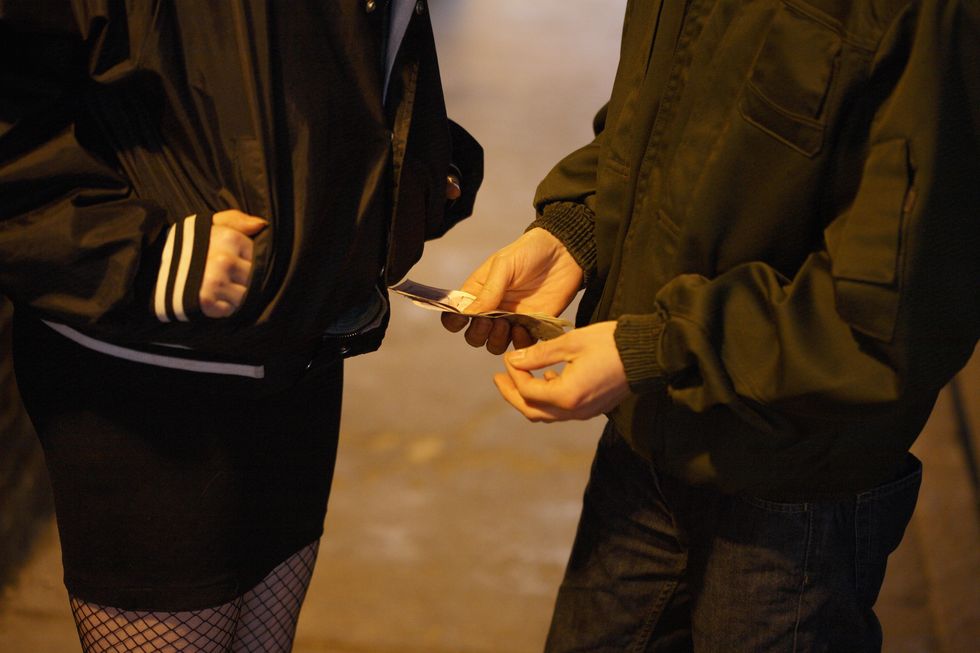The world of sex work is complicated. On the one hand, the law says that the sale and purchase of sexual services between consenting adults is legal. Yet many activities connected with selling sex, such as brothel keeping and soliciting (accosting people on the street), are illegal.
Which makes the life of a sex worker hard. Much harder, in fact.
And the law around brothel keeping essentially forces - or at least incentivises - women to work alone in order to avoid prosecution by the police. Work in a group and you all risk being charged.
'I understand I am a sex worker for a living, but I deserve the same human rights as everybody else,' Suzanne, not her real name, told the Victoria Derbyshire programme.
Born in Romania, she has been a sex worker in London's Soho for five years.
'Every time I come forward to report violence I end up threatened [with being] arrested and prosecuted for working in a brothel,' she says.
'Next time I suffer violence, I sure as hell won't report it.'
Suzanne then goes on to describe one incident in which she believes she came close to dying.
'The person came up, discussed the price, agreed a time, and paid,' much like a normal customer arrangement.
But, she continues: 'At the time of the service the person just put his hands around my neck. He kept on pressing with one hand on my throat, and punched me in my face until I passed out. I was in agony, I was bleeding. During the attack I lost two teeth.'
'The person was there to kill me. I was lucky because I passed out, but if I hadn't he would have done it until I was definitely dead.'
In many cases, police tend to focus on the women and the nature of their jobs, rather than the perpetuator who has just attacked them.
When armed men carrying knives entered the brothel Maria (again, not her real name) was working in, the police were as much interested in the women's activities as the robbery.
'The police asked about the guys that went there - but they were talking more about the work inside of the place, how much money they got, how many girls, how many customers,' she told the Victoria Derbyshire show.
A week later, they received a letter from police saying they 'could go to jail or be deported, because we were working in a brothel'.
For this reason, many sex workers are reluctant to report incidents of abuse and violence to police. This then leaves them much more vulnerable to attack from gangs who know they've got a better chance of getting away with it.
In 2016, MPs recommended a change in the law 'so that soliciting is no longer an offence and so that brothel-keeping provisions allow sex workers to share premises, without losing the ability to prosecute those who use brothels to control or exploit sex workers'.
But the government said it could not introduce the change because 'we do not have at present a robust evidence base regarding the scale and nature of prostitution in England and Wales'.
As of September 2017, the Home Office said it had 'no plans to change the law around prostitution'.
But, they said, it is their priority to 'protect those selling sex from harm and exploitation' and 'target those who exploit vulnerable people involved in prostitution.'
















